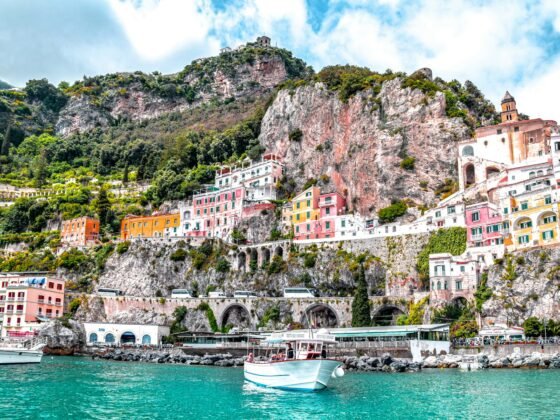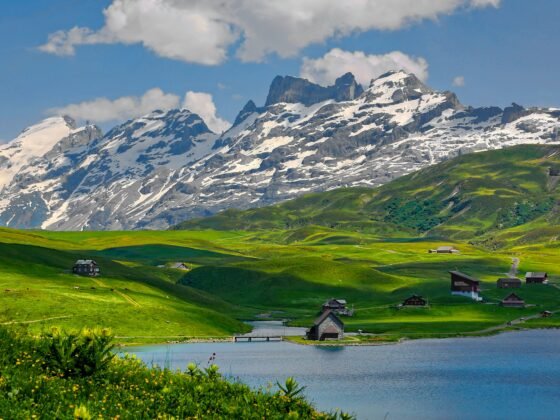
If you’re looking toward visiting another country, it’s not unusual to want to learn some things about the culture and way of life in that place. When you’re more familiar with these things, it could make communication much easier. It’d also allow for a better experience because speaking to locals in their own language would make them more relaxed when engaging with you.
Based on recent numbers, only about a third of the Japanese population can speak English, not because they don’t want to, but because they revere their language and culture so much that they try not to have it influenced by other languages. This is why, as a visitor to their country, it is best to make an effort in learning their language.
You might like to consider enrolling in online Japanese courses before your trip. This can significantly add to travel experience. Not only does it prepare you for basic interactions, like asking for directions or ordering food, but it also shows respect for the local culture and people, enhancing your connection with them and enriching your journey in Japan. For example, if you need to write an address in Japanese to get to a certain destination, or ask for directions, it is so much easier if have a grasp of the language.
One of the most usual things visitors do before going to a place is learning the most common languages spoken in that region. In particular, when visiting any places in Japan such as Tokyo, you may find it worthwhile to learn a few phrases in Japanese. This may break numerous communication barriers and open up more channels for learning and discovery. The following are some easy Japanese phrases to learn before visiting Japan.
- こんにちは (Konnichiwa)
Greeting someone in their home language every day could be very refreshing for a local in Japan. It could make them feel you’re welcomed. It gives locals the idea that you appreciate the culture Japan maintains, even if it’s just through language.
‘Konnichiwa’ can be used in formal and informal situations. For instance, you can use this greeting when being introduced to someone for the first time or when you’re about to begin a meeting with your colleagues. ‘Konnichiwa’ translates to ‘hello.’ It’s one of the first phrases you’re taught in a Japanese conversation class or on a language-learning app. This is the most common greeting, and many visitors usually have this one on lockdown before they even hop on the flight to Japan. However, if you didn’t have it on lockdown, this may be the guide you needed.
- ありがとうございます (Arigatou Gozaimasu)
‘Arigatou gozaimasu’ translates to ‘thank you’ in English. ‘Thank you’ is a very useful phrase in any place you travel to. People feel even more appreciated when they’re thanked in their home language. It makes them aware you went the extra mile to ensure they completely understand how thankful you are.
You wouldn’t know when you might need someone’s help on anything while in Japan. It could be asking for directions when you’re lost or inquiring about ingredients on the menu, so you don’t eat anything you’re allergic to. A good Samaritan will appreciate it if you show gratitude and respect. This phrase is often used in formal situations, but for a less formal scenario, add ‘Domo’ before the phrase. It’s a more casual expression but still conveys gratitude and respect.
- 日本語がわかりません (Nihongo Ga Wakarimasen)
If you’ve never spoken Japanese before despite learning a few phrases or words, there’s going to be a lot of things you won’t understand. The phrase ‘Nihongo ga wakarimasen’ translates to ‘I don’t understand Japanese’. It’s hard to tell someone you don’t understand the language they’re speaking using a language they don’t understand. However, if you tell a Japanese local you don’t understand them in Japanese, they’re likely to present you with other communication options.
They could grant you permission to use translation apps. They could get someone who speaks English to assist you or translate for them. Perhaps they could even switch to your language themselves if they’re familiar with it. This phrase is definitely one to keep in your back pocket for your next trip to Japan.
- _______ はどこですか?(______ Wa Doko Desu Ka?)
Japan is a big country with lots of things to discover. Even if you think you’re familiar with all the twists and turns, you might need assistance with directions somewhere along the way. The phrase ‘______ wa doko desu ka’ means ‘Where is _______?’ This is what you’d use to ask where a place is. For example, ‘where is the bathroom?’ translates to ‘toire wa doko desu ka?’
Along with this, you may want to consider the translations of some basic important places. For example, ‘the police station’ translates to 交番 (kouban), ‘the hotel’ to ホテル (hoteru) and ‘the convenience store’ to コンビニ (konbini). Knowing these phrases would allow you to communicate more seamlessly, whether you’re trying to navigate through subway systems or just finding the nearest ice cream store.
- いくらですか? (Ikura Desu Ka?)
When you visit Japan, there’s a high chance you may consider going shopping. Whether just to buy one item or lots of different items, you’re likely to visit a mall or a market. ‘Ikura desu ka?’ translates to ‘How much is it?’
People who work in stores in Japan may be more likely to help you if you try and communicate in their language. Most people who work in stores in Japan speak Japanese. Therefore, you may end up getting your shopping done quicker and more seamlessly if you know how to ask for prices in Japanese.
If you’re looking to point at something that’s out of reach, you could ask the question, ‘How much is that?’ In Japanese, you would say, ‘sore wa ikura desu ka?’ Furthermore, if you’re holding something or requesting the price of something very near you, you could ask the question, ‘How much is this?’ In Japanese, you would say, ‘kore wa ikura desu ka.’
Learning Japanese
Learning some easy phrases in Japanese is a good thing to add to your predeparture to-do list. Familiarizing yourself with some easy phrases may make it easier for you to understand or communicate with locals in Japan.
For example, during the cherry blossom season in Japan, there are numerous festivals and events to engage in, and knowing a few phrases may make it more enjoyable if you’re visiting during that time. Who knows? Perhaps while you’re at it you may develop a liking for Japanese and eventually make efforts to learn the language further.












